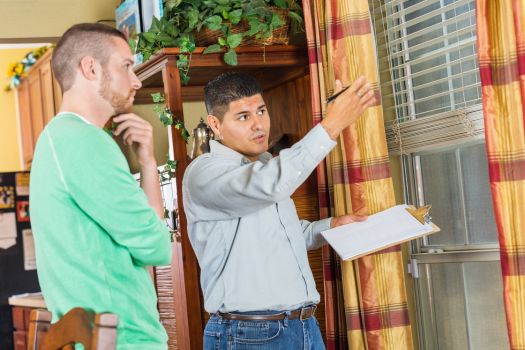Let me walk you through what a home inspector does and why their work matters so much in the real estate world. Whether you’re looking to buy your dream property or planning to sell one, understanding the role of home inspectors is not just helpful—it’s essential.
A home inspection isn’t just a checkbox item. It’s your chance to peel back the layers of a property before signing any dotted lines. At its core, what a home inspector does is provide an informed, unbiased evaluation of a property’s condition. They examine, question, observe, and report. And although this might sound straightforward, the job requires an intricate blend of skill, observation, and communication—and no, it’s not something your real estate agent can or should do.
That’s where I come in. I’m Robbie English, Broker and REALTOR at Uncommon Realty. I’ve built my career on sharpening every angle of this business—from contracts and negotiations to inspections and the many curveballs in between. As a national real estate instructor and speaker, I train agents across the country on exactly what it takes to navigate real estate like a pro. And when it comes to helping you understand the role of home inspectors, my job is to turn what could feel like a technical hiccup into a strategic advantage for you.

TL;DR: What a Home Inspector Does
- A home inspector conducts a visual evaluation of a property’s condition to help uncover issues before you buy or sell.
- Home inspections are not code-compliance checks or deep-dive investigations—they’re expert snapshots of what can be seen and assessed at the time.
- The role of home inspectors is to educate clients, flag potential concerns, and reduce surprises in real estate transactions.
- Choosing the right inspector is your responsibility, and you should be present at the inspection to gain insight.
- Robbie English and his team bring decades of expertise, insider knowledge, and real estate education to help you understand inspection findings and what they mean for your decisions.
Why Home Inspections Matter
Too many buyers and sellers skip over this stage or treat it like a formality. But here’s the truth: A home inspection can make or break your deal. It can uncover hidden problems, spark renegotiations, or validate that a home is in excellent shape. Without it, you’re essentially flying blind.
What a home inspector does is bring an experienced set of eyes to look over the visible elements of the property. They’re not opening up walls or digging into the foundation with jackhammers. Instead, they use their trained observation skills to detect signs that something might be off—and they explain what that could mean for you. These professionals are licensed by the Texas Real Estate Commission (TREC) or another authorized body and have completed hours of training and testing to get there.
Understanding the Role of Home Inspectors
Let’s talk specifics. The role of home inspectors is not to approve or fail a property. They’re not code compliance officers, and they don’t hand out grades. Their mission is simple: evaluate the home based on a visual inspection of what’s accessible at the time.
They focus on the big components:
- Structure
- Roof
- HVAC
- Plumbing
- Electrical
- Appliances
That said, home inspectors are limited to what they can see and reach. If something is hidden behind a wall or beneath a floorboard, it won’t be reported because it’s out of scope. Their job is to identify red flags—conditions that may signal something more serious—and recommend further evaluation by specialists when necessary.
It’s not unusual to hear buyers say, “Well, my cousin knows about houses. Can’t he just look at it?” Respectfully, no. Even experienced contractors don’t go through the licensing process home inspectors do. The training is detailed, the standards are strict, and the oversight is real. When you’re making one of the biggest financial decisions of your life, winging it isn’t an option.
Why You Should Be at the Inspection
Yes, you can read the report later. But being physically present during the inspection is a game-changer. You get to see what the inspector sees, ask questions in real time, and better understand the condition of the home beyond a checklist.
I always encourage my clients to go. And not just go, but be curious. This is the time to ask, “What does that crack mean?” or “Should I worry about this stain?” It helps you become an informed buyer or seller, which makes the rest of the process smoother.
Inspectors are often happy to walk you through their findings while they work. It’s an opportunity to learn from someone who inspects homes for a living—not just once in a while, but all the time.
What a Home Inspector Does (and Doesn’t)
This isn’t a home warranty or a guarantee of future performance. Home inspections are snapshots in time. What a home inspector does is identify visible, existing issues or maintenance items. They are not predicting the lifespan of your water heater or giving you a pass/fail grade on whether a home is worth buying. That part—deciding if the property fits your goals—that’s on you. And that’s where I guide you.
Because I’m not just checking in to see how things are going. I’m with you at every step, helping you interpret the findings, explore your options, and protect your position. Whether that means negotiating repairs or requesting seller credits, I turn inspection insights into action.
Avoiding Mistakes When Choosing an Inspector
One important thing to know: neither I nor anyone on my team endorses specific inspectors. Why? Because the choice has to be yours. I provide you with options—licensed, experienced, and respected professionals—but the final decision rests with you.
You should absolutely vet your inspector. Ask about their experience. Look at sample reports. Inquire about insurance. Not all inspectors approach the job with the same level of diligence, and this isn’t an area where you want to cut corners.
A rushed or careless inspection can leave you with surprises after closing. And no one wants that.
The Fine Print and Limitations
Another truth: the role of home inspectors doesn’t involve moving furniture, removing drywall, or opening up sealed systems. They won’t inspect things they can’t access. That’s why I always recommend you prepare the property properly. Make sure utilities are on, access panels are clear, and attics or crawlspaces are accessible. If they can’t reach it, they can’t inspect it.
And again, inspectors are not code enforcers. They’re trained to identify functionality issues, safety hazards, and deferred maintenance—not to verify whether your addition from five years ago was permitted. For that, we look to other professionals. What matters most here is understanding the real, observable condition of the home.
 How Robbie English Helps You Leverage the Inspection Process
How Robbie English Helps You Leverage the Inspection Process
Here’s where my experience makes a difference. I’ve been in this business for decades. I’ve read thousands of inspection reports and negotiated countless repair amendments. I don’t just forward you the report and wish you luck.
I break it down for you. What matters, what doesn’t, and what we can do about it.
And here’s what sets me apart: I teach agents across the country how to do this well. This isn’t just practice for me—it’s precision. I train others on how to translate the role of home inspectors into real-world strategy for their clients. My team and I are constantly working to master every angle of this industry, and when you work with us, that mastery works for you.
Other agents might hand you a report and say, “Take it or leave it.” Not me. I sit with you. I explain. I strategize. And I help you use that report as a tool—not a hurdle.
A Better Real Estate Experience Starts Here
Whether you’re buying or selling, whether the house is brand new or fifty years old, a home inspection gives you leverage. It equips you with knowledge and allows you to negotiate from a place of strength.
What a home inspector does may seem straightforward on the surface, but when paired with the right real estate guidance, it becomes a game-changer. When you understand the role of home inspectors and align it with the expertise I bring as your REALTOR with Uncommon Realty, you make better, smarter, more confident decisions.
And that’s what I want for you.
When you’re ready, let’s talk. Let’s turn that inspection report into a roadmap, not a roadblock.
Because with me, you’re never going it alone.






Leave a Reply